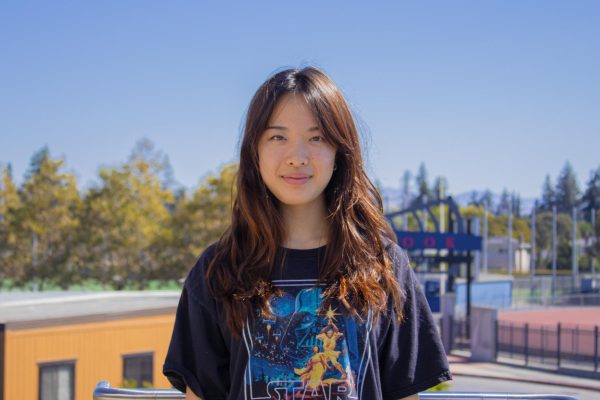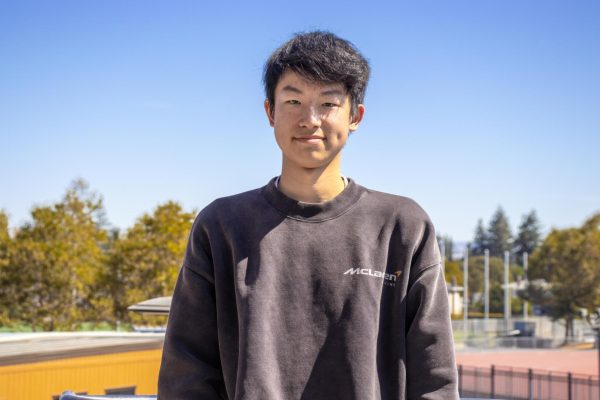In the heart of Silicon Valley, a United States technology hub, H-1B visas play a pivotal role in shaping the workforce by bringing in qualified foreign workers. In the past month, this program has become controversial among President Donald Trump’s supporters who question if the H-1B harms domestic workers.
The H-1B is a temporary visa allowing employers to hire individuals with specialist education or experience from foreign countries to work in roles that require at least a bachelor’s degree or the equivalent, most often in fields such as mathematics, engineering and medical sciences. The visa is initially granted for three years, but an employer can apply for a three-year extension to retain hires for prolonged periods.
Established in 1990 as part of the Immigration Act signed by former President George H.W. Bush, the H-1B visa program has significantly increased the number of foreign professionals working in the U.S. Currently, almost all major tech companies rely on specialized labor. This has led to continued calls for increasing H-1B visa quotas to meet the demand.
Leading up to the 21st century, the American Competitiveness and Workforce Improvement Act — created in 1998 — increased the annual visa cap to 115,00 in fiscal years 1999 and 2000. The lifted capacity for H-1B visas resulted from the labor shortages that impeded the industry’s economic growth when more than 1.6 million people lost their jobs. The H-1B visa was a key resolving factor in the Dot-com recession of 2001; it helped companies recover from the massive loss of the workforce and helped the economy recover in times of rebuilding by making new technological advancements. The early 2000s marked the start of a new era — a technological era that would later transform Silicon Valley into what we know it as today.
In late December 2024, billionaires Elon Musk and Vivek Ramaswamy, who are closely connected to Trump, called for expansion of the program, emphasizing its role in fostering innovation and economic growth. However, their stance provoked many of Trump’s supporters due to Trump’s past efforts to restrict the H-1B program, including reforming requirements governing the H-1B visa.
“I think people’s views on the effects of H-1B visas are dependent on their level of education on economics,” Rocklin High School junior Cole Roberts said, “If you have a semi-decent grasp on economics, then you realize that right now H-1B visas are great things for the future.”
As applicant numbers continue rising, it becomes increasingly difficult, if not impossible, for many to gain access to the H-1B visa. The increased number of H-1B immigrants has sparked debate that the program could negatively affect domestic workers by creating additional competition for job competition. However, reports on the number of H-1B visa applicants in 2025 have declined by a staggering 38.6% due to the U.S. Citizenship and Immigration Services making a rule to ensure only eligible candidates file an H-1B registration. As the economy evolves, the balance between supporting foreign talent and domestic labor remains a discussion, with ongoing debates about the program’s impact on wages.
In contributing to the workplace, H-1B visa immigrants have had a large impact on the U.S. labor force. Supporters of the H-1B visa believe that immigrants bring unique skill sets from their education abroad, create new businesses and develop new ideas for various industries. In agreement with this sentiment, Musk suggested capitalizing on the opportunity offered by expanding the H-1B visa program, arguing that it is the bedrock of many tech companies.
“There is a permanent shortage of excellent engineering talent. It is the fundamental limiting factor in Silicon Valley,” Musk wrote on X.
Conservative Vivek Ramaswamy, a notorious right-wing politician, agrees with Musk. However, he advocates for additional restraints on the visa program.
“H-1B visas shouldn’t use a lottery [system], it should be based on pure merit,” Ramaswamy wrote on X.
Republicans remain divided between stances on the visa program. Right-wing influencer Laura Loomer criticized Musk’s statement, saying the H-1B visa contradicted “America First” policies and accused tech business executives of choosing profit over national interests, a common critique among Make America Great Again — MAGA — supporters on Silicon Valley’s use of foreign labor.
Musk and Ramaswamy’s growing influence in shaping national conversations on immigration policy has only increased since their appointment to the Department Of Government Efficiency, newly implemented by Trump on Jan. 20, 2025. While the DOGE is not a federal department in the President’s Cabinet, their influence is undeniable. As Trump signs executive orders against immigrants, such as his order to remove birthright citizenship for children of visa holders, the future of the H-1B visa remains unclear but at risk.





































































